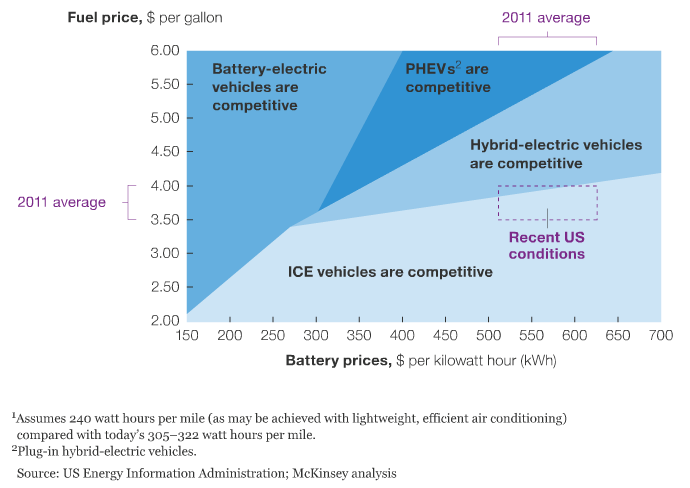edatoakrun
Well-known member
http://www.autonews.com/article/20150328/OEM05/303309999/calif-considers-a-plea-for-plug-in-hybrids" onclick="window.open(this.href);return false;

California's failure cuts my LEAF miles by about 3,000 miles a year, effectively forcing me to drive many of those miles in an ICEV.
But the standout comment in this story is this quote:
Oh...
In other words, Auto makers who have made large investments in PHEVs now realize they can't sell them profitably into a market with current ~$3 a gallon gas (and maybe, ~ $250 a kWh battery) prices without increasing CARB credits. They made a bad bet on high gas prices when they put their PHEVs into development years ago, and now:Calif. considers a plea for plug-in hybrids
Automakers seek easier way to meet ZEV rules
...Ford, General Motors, Honda and Toyota, worried that they'll need to offer large incentives to sell their share of ZEVs, are pushing California to rewrite its formula to offer more credit for plug-in hybrids such as the Volt. In a complaint to the California Air Resources Board, they argue that these vehicles address range anxiety and are more likely to be accepted by customers in the short run...

I wonder if it occurs to anyone at CARB that a major factor in limiting EV miles driven in BEVs is the utter failure of California to develop dependable public DC charging infrastructure?...The complaint has opened a small rift within CARB, which oversees the ZEV rules. During a hearing in the fall, Honda and its three allies called for a new formula based on electric vehicle miles traveled, or e-miles.
They pointed to a 2014 analysis by the U.S. Department of Energy's Idaho National Laboratory. Researchers crunched data from 21,600 EVs and plug-in hybrids and found that Volt owners were averaging 9,112 e-miles per year, just shy of Leaf owners' 9,697 e-miles -- even though the Volt can go only half as far before running out of battery power...
California's failure cuts my LEAF miles by about 3,000 miles a year, effectively forcing me to drive many of those miles in an ICEV.
But the standout comment in this story is this quote:
How could a Carb member have come to make such a ridiculous comment?"I really don't believe by 2030 we're going to be able to get a really large market penetration with pure EVs."
Dan Sperling, California Air Resources Board
http://en.wikipedia.org/wiki/Daniel_Sperling" onclick="window.open(this.href);return false;...In 2013, he served as chair of the California Fuel Cell Partnership, a public-private organization aimed at promoting the commercialization of hydrogen fuel cell vehicles...
Oh...
